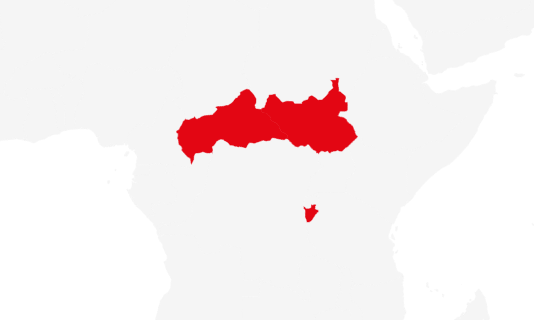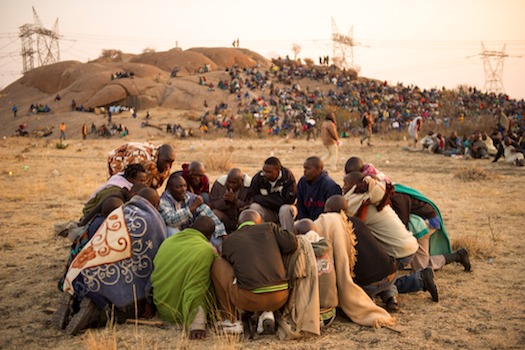- About
- Topics
- Picks
- Audio
- Story
- In-Depth
- Opinion
- News
- Donate
- Signup for our newsletterOur Editors' Best Picks.Send
Read, Debate: Engage.
| January 22, 2018 | |
|---|---|
| topic: | Good Governance |
| tags: | #African Leadership, #Africa, #governance, #law, #corruption, #Mohammed "Mo" Ibrahim |
| located: | South Sudan, Burundi, Central African Republic |
| by: | Bob Koigi |
Sudanese- born British billionaire and philanthropist Mohammed "Mo" Ibrahim, who is credited with having established a telecommunication company Celtel, that was the first to connect millions of Africans, now runs an institution that advocates for good governance and respect to rule of law among African leaders.
The Mo Ibrahim Foundation that came to being in 2006 has dedicated its cause to appreciating and rewarding African retired presidents who have taken an active role during their terms in office to promote the well-being of their people, embrace democracy and rule of law and transfer power peacefully to their successors. This, through the Ibrahim Prize for Achievement in African Leadership, the largest of its kind in the world that rewards the winner with an initial $5 million and a further $200,000 annual payment for life. The recipient is at liberty to commit the money to a cause of their choice.
The benchmark for the award has been set so high, that since it was established some 11 years ago, it has only had four recipients. Still, the foundation maintains that it cannot compromise on the standards it set, because it believes service to the people and respect to the law should never be unwavering.
The pioneer winner of the award in 2007 was former Mozambican president Joaquim Chissano who is celebrated for having steered his country through deadly starvation and civil war in the 80s after elaborate negotiations with Renamo rebel faction that saw him offer half of the Mozambique army to the rebels.
When peace finally prevailed, he set out to create democratic institutions and used the resources and donations he received from the international community to build schools and hospitals while angling the country to a market economy. In 2004 he decided to step down even though the constitution allowed him to run for a third term, arguing that there was a need for fresh blood to steer the growth of democratic institutions and inject new ideas.
Cape Verde’s former Prime Minister Pedro Pires, the recipient of the 2011 award is credited with blending development with democracy, investing heavily in infrastructure by building three international airports and an expansive road network. The West African archipelago is also hailed for its impressive democratic process and a smooth electioneering process that has seen it become the only African country to be rated highly by the Freedom House for democracy and political freedom.
Other winners of the award include Botswana’s former president Festus Mogae and ex Namibian President Hifikepunye Pohamba.
This year, as has been customary, the Foundation announced that there has been no winner in 2016 marking the second year in a row that the prize has remained unclaimed. “As I emphasise each year, a very high bar was deliberately set when the Prize was launched in 2006. We recognise and applaud the important contributions that many African leaders have made to change their countries for the better. But the Prize is intended to highlight and celebrate truly exceptional leadership, which is uncommon by its very definition. After careful consideration, the Committee has decided not to award the Prize in 2016,” the Prize Committee chair by Dr Salim Ahmed Salim said in a statement.
It would appear that the hunt for the next recipient will be a long one if recent events in the continent are anything to go by. From never-ending orgies of violence in the Central Africa Republic, Burundi and Sudan, mutating and high-level corruption in South Africa and Kenya to extending the presidential age limits that allow ageing sitting presidents to hang on to power, chances of a new laureate remain slim. “We still have leaders who have shown exemplary leadership who could still bag this prize, like Ellen Johnson Sirleaf from Liberia or Botswana’s Ian Khama. But what we need to realize and what this prize has taught the continent is that a president alone cannot be a good leader. We have to have strong institutions to help these leaders drive and accomplish the democratic agenda,” said Prof. Boaris Omolo from the department of political science at the University of Nairobi Kenya.
Still, the Mo Foundation continues keeping its pulse on African governance. To complement the prize, it runs the Ibrahim Index of African Governance, a metric that uses over 100 variables to rate governance across African countries premised on four main categories that include human development, rule of law, participation and human rights and sustainable economic opportunity.
The index is a vital component that global donors like the UK’s Department for International Development and USAID rely on to determine where they will concentrate their aid.
Dr. Ibrahim has also set up a fellowship program focused on inspiring and mentoring future leaders in embracing the tenets of good governance.
With the continent’s rising narrative juxtaposed with old and emerging threats to stability, all eyes are trained on which leader will stand up to be counted in the next Ibrahim Prize for Achievement in African Leadership.
By copying the embed code below, you agree to adhere to our republishing guidelines.

